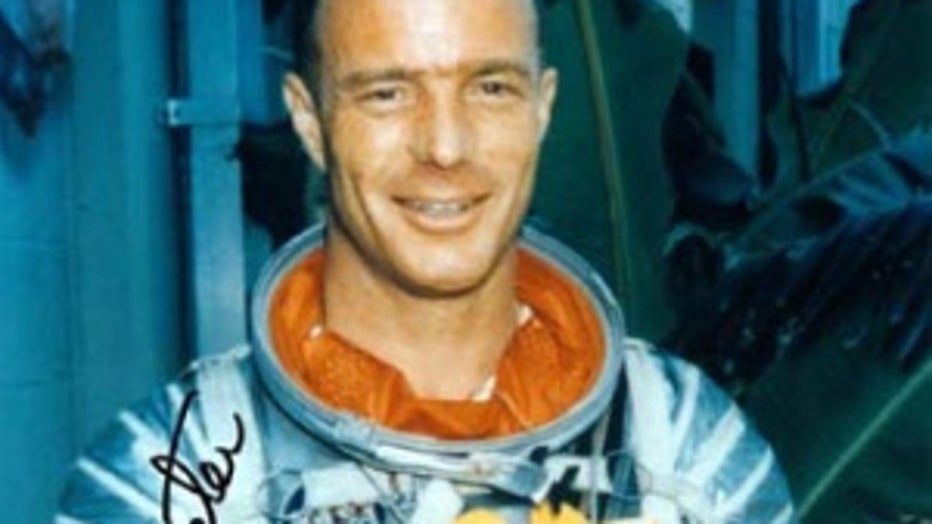One of America's original 'Right Stuff' astronauts dies at 88
DENVER (CNN) -- Astronaut Scott Carpenter, the second American to orbit Earth, died on Thursday, NASA said. He was 88.
His wife, Patty Barrett, said Carpenter died in a Denver hospice of complications from a September stroke. He lived in Vail.

"We, the whole NASA family, are mourning with Scott's family. We have lost a true pioneer. I shall long remember him not only for his smarts and courage but his incredible humor. He kept us all grounded," said NASA Administrator Charlie Bolden. "We will miss him greatly."
Carpenter was one of the Mercury Seven astronauts chosen by NASA. He was a backup pilot for John Glenn in the preparation for America's first manned orbital space flight in February 1962, according to a NASA biography.
Carpenter flew the second American manned orbital flight on May 24, 1962 -- a time when spaceflights were new and captured the attention of the entire nation.
He orbited the Earth three times and also gave NASA its first major scare. Technical problems and low fuel forced Carpenter to manually bring the space capsule back to Earth. He splashed down in the Caribbean Sea, about 250 miles off course.
Millions of television viewers held their breaths wondering if Carpenter survived, before a Navy rescue crew found him.
Carpenter never flew in space again, but did live on the Pacific Ocean floor for a month aboard the Sealab capsule in 1965.
The story of Carpenter's flight and the seven original astronauts is vividly told in the book and film The Right Stuff. Carpenter's death leaves John Glenn as the only one of the first seven astronauts still alive.
Carpenter was born in Boulder, Colo., and attended the University of Colorado, where he studied aeronautical engineering. He retired from the Navy in 1969, after two decades of service, NASA said.
Carpenter's memoir, "For Spacious Skies: The Uncommon Journey of a Mercury Astronaut," was published in 2003.
"He was one of the good guys and a good friend, a pioneer who made significant contributions to our country," said Dick Gordon, command module pilot for Apollo 12.

